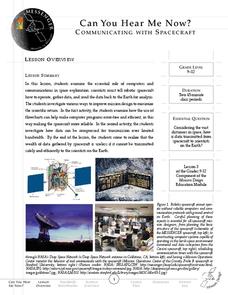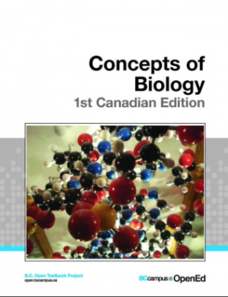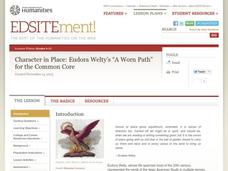Curated OER
Playing with Prepositions of Place
Transform the way you teach prepositions of place with Harry the Hiker, the age-friendly, easy-to-understand model.
Curated OER
Praire Biome Models
Fifth graders, in groups, list the physical characteristics of a biome and think of ways in which animals might have to adapt to live there and make a biome mobile ball that show the different types of habitats that shape the praire biome.
American Museum of Natural History
Ocean Creature Feature
From coloring to hard protective shells, ocean creatures have adaptation features that help them survive. An eight-question online quiz highlights different ocean animals and their unique characteristics. The resource then offers pop-up...
NOAA
Currents
Learn how ocean currents are vital to humans and marine life. The eighth installment of a 23-part NOAA Enrichment in Marine sciences and Oceanography (NEMO) program, focuses on ocean currents and how they affect global climate. The...
Curated OER
Light Stick Chemistry
In groups of three with the lights off and the shades drawn, investigators place inactivated light sticks, in three beakers: one filled with ice water, another with lukewarm water, and the other with room temperature water. They wait...
Messenger Education
Can You Hear Me Now?—Communicating with Spacecraft
Radio signals transmitted to Pluto take five hours to reach their destination! In these two activities, young scientists explore data communication in space. In activity one, pupils learn how data is gathered and sent back to Earth....
NOAA
A Matter of Density
Larvae transportation on the New England seamounts is based on the density of the water. Scholars calculate density and graph salinity versus temperature to better understand the distribution of organisms in a water column....
Teach Engineering
The Great Pacific Garbage Patch
The Great Pacific Garbage Patch is one of several garbage patches around the world where garbage accumulates naturally. As part of a GIS unit that combines oceanography, environmental science, and life science, class members investigate...
Kenan Fellows
Industrial Knowledge of Acids and Bases
Over a 10-year period, EPA regulations cost businesses less than $30 billion, while businesses saved over $82 billion. Scholars experiment with acids and bases to better understand the pH scale. Then they debate environmental regulation...
Perkins School for the Blind
Human Body Regulation
The human body can regulate itself through sweating and resting. Learners with visual impairments discuss how the body changes when it is under stress and what it does to regulate itself. To start, kids use talking thermometers to take...
Curated OER
A Study of Twentieth Century British Culture through Art and Literature
Here’s an interesting approach to the analysis of similar subjects in different mediums. Based on the methodology of Professor Jules Prown, learners apply his three stages (description, deduction, and speculation) to a painting and a...
Curated OER
Bursting Blooms- Create an Early Spring
Students prune a tree. In this gardening lesson, students select a shrub or tree that has a lot of flower buds and use sharp pruners to cut sections of branches. Students place the cuttings into cool water and move into a...
Curated OER
Biology Jeopardy
Play Jeopardy as you review what might possibly be an entire year's high school biology course! The vast variety of questions requires that you read through the slides to make sure that they all relate to your curriculum. You could make...
University of Wisconsin
Rain Garden Species Selection
The activity really comes to life within its intended unit on starting a rain garden. Working in groups, participants research native plants and coordinate them with the conditions in the designated garden area. Give the class access to...
Montana Natural History Center
Studying Grassland Ecosystems
At first glance, grassland ecosystems might seem dull and uninteresting, but once you start to explore it's amazing the things you'll find! Through this series of engaging lessons, activities, and experiments, elementary students examine...
Shelby County Schools
How Ecosystems Work
How does one organism get its energy? What is the main source of energy in an ecosystem? How does the flow of energy affect different types of ecosystems? Answer these questions with a fill-in-the-blank worksheet.
Kenan Fellows
Terrarium in a Bottle: Modeling the Atmosphere, Greenhouse Effect, and Water Cycle
You've heard of farm to table ... but what about farm in classroom? Junior agriculturalists embark upon a two-week journey into the science of growing things. Based upon the classic terrarium in a two-liter experiment, the lesson goes...
BC Open Textbooks
Concepts of Biology – 1st Canadian Edition
How diverse are living things? Individuals explore topics such as cells as the foundation for life, cell division and genetics, molecular biology, and animal reproduction using an open resource Biology textbook. They learn key terms...
Curated OER
Single Event Upsets in Aircraft Avionics
In this aircraft avionics worksheet, science fans read about the first unmanned air vehicle that collects data about the Earth and is subject to damage by cosmic ray showers. Pupils analyze two graphs of data showing the neutron flux vs....
Howard Hughes Medical Institute
The Day the Mesozoic Died
While this is not the traditional, step-by-step lesson plan, it is chock-full of material that you can easily incorporate into your earth history unit. Its main purpose is to serve as a guide to using a three-part film, The Day the...
National Endowment for the Humanities
Character in Place: Eudora Welty’s “A Worn Path” for the Common Core
How do writers use the interaction between elements like characterization and setting to create meaning? Readers of "A Worn Path" create a series of comic book-style graphics of Eudora Welty's short story and reflect on how Welty...
K5 Learning
Rhyming Animals
Second graders read an informational text passage on animals, as well as a poem that incorporates rhyming words. Then, 2nd graders answer questions based on what they read.
NOAA
El Niño
El Nino, La Nina ... and the Santa Maria? The 11th installment of a 23-part NOAA Enrichment in Marine sciences and Oceanography (NEMO) program explains the mechanism of El Nino/Southern Oscillation. Pupils use previous data to determine...
Curated OER
Arabia: Educator's Resource and Activity Guide
MacGillivray Freeman's film Arabia presents viewers with remarkable images and insights into this ancient and mysterious land. An educator's guide is designed to provided teachers with the materials they need to support a...























